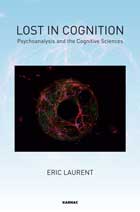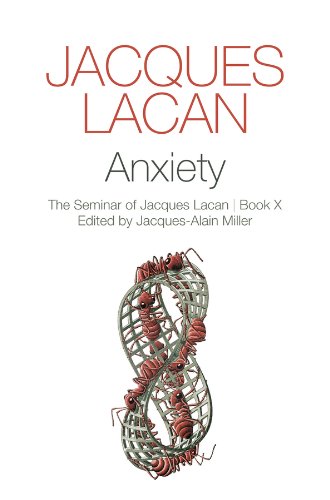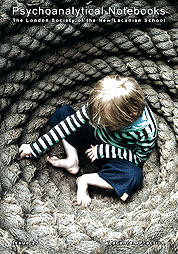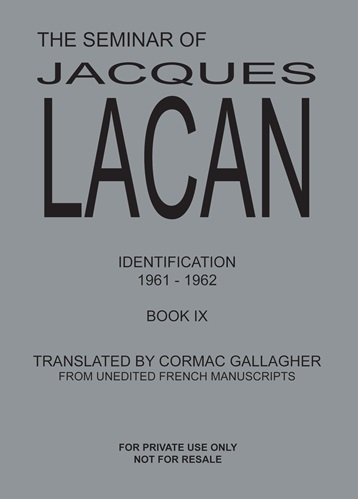Lost in Cognition: Psychoanalysis and the Cognitive Sciences

Book Details
- Publisher : Routledge
- Published : August 2014
- Cover : Paperback
- Pages : 192
- Category :
Lacanian Psychoanalysis - Category 2 :
Neuroscience - Catalogue No : 34962
- ISBN 13 : 9781782200888
- ISBN 10 : 1782200886
Also by Adrian Price
Anxiety: The Seminar of Jacques Lacan, Book X
Price £60.00
There are currently no reviews
Be the first to review
This book examines the pretensions of the new paradigm in psychology that has put itself forward as the model for the future of the clinical disciplines, thereby seeking to put paid to psychoanalysis. What is this paradigm shift? It goes by the name of cognitive-behaviourism. Where does it come from? From the United States. Until the nineteen-sixties, behavioural psychology had enjoyed a certain prestige in the US. It was later disqualified by the objections from the linguist Noam Chomsky who held that no learning procedure could ever account for linguistic ability. This ability was surely innate, Chomsky argued, and so he set about hunting out the organ of language. Behaviour had to be complemented by a machine for taking cognisance, a machine that was innate and which conformed to the post-Chomskyan model. It took the discipline some thirty years to deck itself out in new clothes. The advances in biology, in neurology, and in the nebula that resulted from them under the ‘neuroscience’ label, oversaw this change. Under the name of behavioural-cognitivism, a new reduction of human experience to learning has emerged.
Based on the psychoanalysis of Lacanian orientation, this book upholds an opposing thesis. The unconscious does not fall into the “learning” category. It is what is missing from or surplus to any possible learning process. It a mode of thought that is free from both learning and consciousness, and this is what is at once odd and scandalous about it.
Reviews and Endorsements
'What is the relationship between psychoanalysis and cognitive science? Is it not high time that psychoanalysis fell in line with the latter by trying to combine the theory of the unconscious with the findings of neuroscience? This book by Éric Laurent does not take such simplistic shortcuts. Rather, he pinpoints the position of psychoanalysis and shows how it cannot be assimilated to a translation of its clinical practice in narrow scientific terms. He sheds light on the “real” that is specific to psychoanalysis, and which is not to be confused with the “real” of science.’
— Antonio Di Ciaccia, President of the Istituto Freudiano, Rome
‘From the confrontation between psychoanalysis, which is untranslatable, and the Babel of the so-called cognitive sciences in their translation into neuroscience, Éric Laurent extracts the subject, the central theme of this book. This is an excellent way to bring the subject, which is precisely what is lost in this translation, before us.’
— Miquel Bassols, President of the World Association of Psychoanalysis
‘Cognitive behaviourism seeks to reduce the human subject to a system of learning processes, turning it into an anonymous entity within uniform, impersonal categories of classification. Éric Laurent demonstrates that this model fails to grasp the complexity of human existence, positing the Freudian unconscious as an alternative that bears the singular truth of the subject, a truth that lies beyond any learning process.’
— Avi Rybnicki, psychoanalyst, department of psychoanalytic psychotherapy, Bar-Ilan University, Tel Aviv District
‘This is the opportunity to remind ourselves just how far psychoanalysis is from both science and religion. The traditional opposition between mind and brain that is endorsed by the likes of Jean-Pierre Changeux obscures what is really at stake, above all in political terms, and it is not by chance that Éric Laurent opens the first section of his book with a dialogue with Chomsky on the question of the inscription of the subject.’
— Nathalie Charraud, author of The Real in Mathematics
‘Lost in Cognition offers a complete and utter reversal: rather than it being science that gives an account of spoken languages, it is spoken language that allows for the emergence of science. This book shows that the unease generated by the discovery of the unconscious is such that, since the start of the twentieth century, memory has continued to obsess researchers. Likewise, the perspective of “localisation” has been driving the brain scientists. Éric Laurent clearly affirms that the unconscious cannot be localised, and that there is nothing to be expected from these attempts to confirm psychoanalysis through neuroscience.’
— Dr Guy Briole, professor of psychiatry at Val-de-Grâce Hospital, Paris
About the Author(s)
Éric Laurent is a former president of the World Association of Psychoanalysis and author of La bataille de l’autisme: de la clinique à la politique. In 2004 he delivered the 'Eight Guiding Principles for Any Psychoanalytic Act' to the General Assembly of the WAP, and in 2011 was invited to deliver the Abram Kardiner Lecture at the New York Academy of Medicine. Éric Laurent has lectured widely in Europe, Israel and Latin America and his articles are regularly translated into English in the Psychoanalytical Notebooks of the London Society, Lacanian Ink and Hurly-Burly.
Customer Reviews
Our customers have not yet reviewed this title. Be the first add your own review for this title.
You may also like
The Pathology of Democracy: A Letter to Bernard Accoyer and to Enlightened...
Jacques-Alain Miller
Price £18.99










